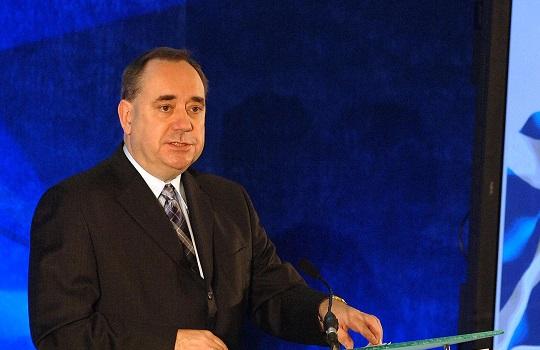Following the two-hour live debate on STV earlier this month Scottish First Minister Alex Salmond and Labour MP Alistair Darling, chairman of Better Together, will make the case for Scotland remaining part of the United Kingdom once again, but this time to the whole of the UK on the BBC.
On 25 August all eyes will be on the First Minister following strong criticism of his first round from expert commentators.
Speaking at the SNP annual conference last year, Salmond highlighted the importance of building trust, but with a poor performance earlier this month how can Salmond win the confidence of his supporters and sway the remaining undecided votes to successfully deliver the case for Scottish independence?
The importance of trust
The Scottish Government has a higher approval rating than the UK Government and the First Minister has seen this as an “ace card” in the referendum. He feels that one of the campaign’s key aims has been to "transfer that trust in this government on to the referendum campaign".
A Sunday Post poll earlier this year also showed that trust is a real issue in the independence referendum battle. More than a third of Scots said they were not getting honest answers from either side. A staggering 62% of undecided voters did not trust either side to give them the truth on independence.
And while the proportion of undecided voters has been significantly reduced on the run up to 18 September, it will be these votes that will make the difference.
So how can leaders address this issue? Next week will be a good opportunity.
Leadership is connection
Political leaders need voters to connect to them. Voters connect to more than policies. People want to see a clear purpose and sound values – things they can believe in and engage with on an emotional level. This is how trust is built. In recent years, we’ve witnessed a breakdown of trust in both politics and big business. An already cynical British public has become increasingly mistrustful in the wake of high-profile scandals and corruption. People are demanding that leaders become more authentic, more transparent.
Winning trust requires openness and honesty. Recent CIPD research, carried out with the University of Bath, suggests leaders need to drop their ‘uniform of leadership’ and occasionally reveal their personal side to be seen as more trustworthy. The report, ‘Cultivating Trustworthy Leaders’, found that people still have high levels of uncertainty about their future and, as a result, now need ‘a greater and more overt demonstration of trustworthiness from their leaders’.
Can Salmond and Darling reveal their true passions to win the hearts of voters? A very discerning voting public will be watching.






